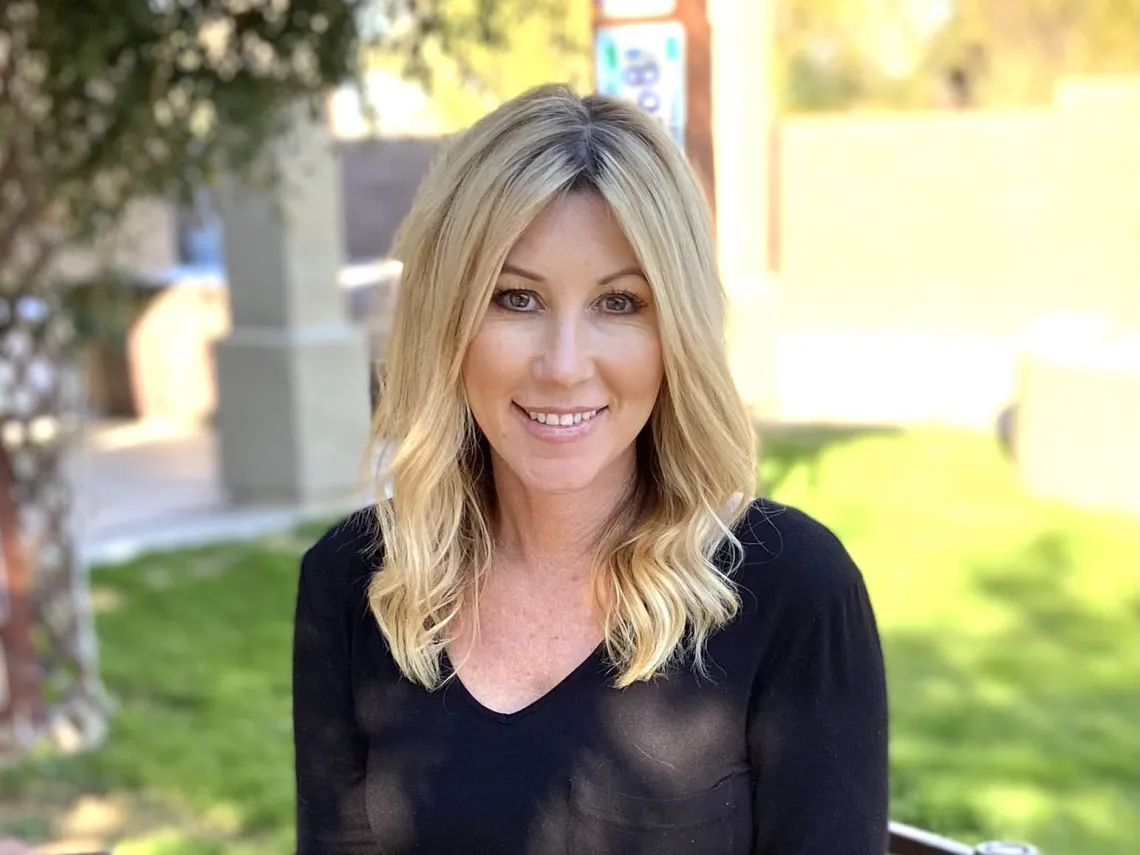2L Krista Avenenti Wins 2022 Richard Grand Legal Writing Competition

For this year’s Richard Grand Legal Writing Competition, students were asked to write a personal essay explaining how they have been inspired to make a change by some element of pop culture.
Second-year law student Krista Avenenti won first place with her essay on how poetry gave her an appreciation for the power of language. She wrote of being a teenager and discovering a book of James Laughlin poems on the shelf of her local bookstore and realizing how poetry can connect people to each other in profound ways.
“The characteristics of good writing – precision, clarity, and brevity – remain the same, regardless of style or register," said Assistant Director of Legal Writing and Clinical Professor of Law Tessa Dysart. "We want students to nurture their love for writing, and approach all forms of writing with creativity and skill.”
Professor Susie Salmon, who directs the University of Arizona Law Legal Writing program and serves as president-elect of the national Legal Writing Institute, agrees. "The Grand Writing Competition Awards ceremony is my favorite event each year. The winning essays showcase not just the strong fundamental writing skills and storytelling instincts our program and professors nurture, but also the rich diversity of background and lived experience our students will bring to the legal profession."
The competition judges reported that it was difficult to rank the final four essays, with Dysart noting that “all of the entries were so good…at one point I thought we were going to have a four-way tie.”
The three additional finalists were:
Mia Burcham (1L)—Second Place
Rudra Reddy (1L)—Third Place
Analisa Skeen (2L)—Honorable Mention
Read an excerpt from the winning essay by Krista Avenenti:
Here’s the thing: before I opened that book, I would have told you that I had nothing in common with James Laughlin. He was an old man. He’d been married and divorced, lost a wife I think, and had a couple of kids maybe (he might even have been dead already by the time I picked up his book that night). I was a seventeen-year-old girl with a part-time waitressing gig and a Honda Prelude that needed a paint job. His pain couldn’t be anything like my pain. We were not alike. But I was wrong. This man shared his feelings in a way that I hadn’t experienced before. He detailed loneliness and loss on one page, after he’d identified his son’s body at the coroner’s office. He felt sweet nostalgia for a long-lost love, and angry, spiteful, jealousy toward someone’s new lover (lookin’ at you, Selena Hilton), and he had a dumb, romantic kind of hope that he would find love again. I had never met this man, but I felt like he knew me. I felt like James Laughlin, a man long-since dead and completely unknown to me before that night, knew exactly who I was on the inside. Maybe that’s what I was looking for at the bookstore that night after all. I just needed to feel not alone.
It didn’t happen overnight, but something about that revelation changed me, and inspired me to stop seeing life through such a small, a self-centered, teenage, lens. Realizing that my emotions, my feelings and faults and missteps and defeats, weren’t mine alone, that they were part of what everyone deals with as human beings, changed the way I think about myself. Perhaps more importantly, it changed the way I feel about and think about other people. I began to realize that if James Laughlin, a successful publisher and actual grown-up man, had the same insecurities and longings that I did, there were probably lots of other people out there who did, too. Lots of other lonely weirdos, just like me. Some people say that those high school years are the best years of your life; that was not my experience. But these poems gave me hope that there really were people like me out there in the world, and hope that I would find those people someday.
Judges for this year's competition, many of whom have careers in both art and the law, were:
• Colin Greene Blakely, Director of the University of Arizona School of Art
• Tim Eigo, Editor, Arizona Attorney Magazine
• Adam Kargman ('00), director, writer and Partner at Isaacs Friedberg
• Heidi Nielson ('15), Artist and Lawyer
• Professor Suzanne Rabe ('79), former director, Legal Writing Program
• Barbara Sattler ('81), author, former Pima County Superior Court Judge
• Mark Van Vleet ('91), senior director of Global Compliance, GoDaddy
• Jonelle Vold ('01), VP of Development, University of Arizona Foundation
Watch the awards ceremony to hear the finalist essays:
About Richard Grand
The Richard Grand Legal Writing Competition was created and is funded by the late Richard Grand, a 1958 alumnus of University of Arizona Law who drew inspiration from art throughout his life and legal career. He often compared closing arguments to jazz, and he likened the “spark” great actors light in the imaginations of a theater audience to the connection a skilled trial lawyer has with a jury. He and his wife, Marcia, were avid art collectors who supported local Tucson artists, and many of their ongoing philanthropic endeavors support the arts.
A self-proclaimed "merchant of words." Grand began his practice as a deputy county attorney. After that, his practice was limited to representing plaintiffs. On more than 100 occasions, he obtained either a verdict or settlement in excess of $1 million.
In 1972, Richard Grand founded the Inner Circle of Advocates, which is limited to 100 lawyers in the United States who have completed at least 50 personal injury trials and have at least three verdicts in excess of $1 million for compensatory damages. The Inner Circle still exists today.
